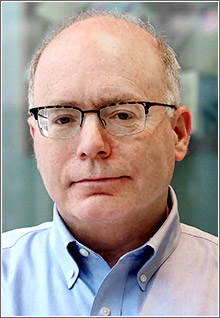News
Are Fewer Physicians and Self-Service Health Care the Answer?
David Asch NEJM Perspective Targets "Health Care's Choke Point"
Citing the strategies other industries successfully used to reign in skyrocketing costs while maintaining product availability and quality, University of Pennsylvania health care innovation expert David Asch writes that real health care change requires the removal of the field’s “choke point” — the physician-patient gateway to care.

“So long as we continue to think of health care as a service that happens when patients connect with doctors, we shackle ourselves to a system in which increased patient need must be met with more doctors,” Asch and his co-authors write in a Perspective in the May 16 issue of the New England Journal of Medicine (NEJM). The commentary is entitled “Toward Facilitated Self-Service in Health Care.”
Asch, MD, MBA, is the Executive Director of the Penn Medicine Center for Health Care Innovation and an LDI Senior Fellow. His co-authors are Sean Nicholson, PhD, Cornell University Professor of Policy Analysis and Management, and Marc L. Berger, MD, former Vice President of Real World Data and Analytics at Pfizer.
Turbo Tax for health care
“Other industries,” they point out, “overcame similar constraints in various ways — McDonald’s pioneered a production line approach to fast food, for example — but more recent transformations have come from facilitated self-service. Taxpayers abandoned tax preparers when Turbo Tax created a new pathway to do what they wanted. Until we invent the TurboTax of health care, we won’t achieve the kind of productivity gains needed for transformative change in quality, access, or cost (in health care).”
The NEJM Perspective piece points out that primary care physicians are the most expensive method for providing primary care services when large portions of the populations’ routine ailments could be managed in a more automated, tiered manner.
Clinical pathways for common medical conditions aim to make care algorithmic so it isn’t science fiction to suggest that hypertension could be managed using a bot.
David Asch
Tiered response
“Clinical pathways for common medical conditions aim to make care algorithmic,” the authors write, “so it isn’t science fiction to suggest that hypertension could be managed using a bot, with a nurse available for second-line support and a primary care physician serving as the third line.”
“An efficient industry wouldn’t lead with primary care, but would reserve it for cases for which lower levels of support haven’t been enough,” continued Asch and colleagues. “Change in other industries has typically started with lower-complexity services and gradually been applied to more complex services.”
“Because so much care is or can be algorithmic,” they continued, “hypertension, hyperlipidemia, anticoagulation, diabetes, and other common problems might be far more efficiently managed by a bot than by individual clinicians whose practices often deviate from guidelines. Creating the rules for basic care and the handling of exceptions doesn’t seem hard, but making such approaches acceptable to patients and clinicians is essential.”